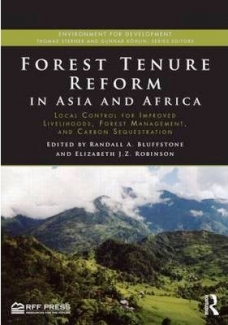FILTER
Displaying 11 - 20 of 31 publications
Continued high reliance on traditional biomass fuels and stoves in developing countries gives rise to several human health, environmental, and livelihood issues. However solid data on the performance…
| Peer Reviewed | EthiopiaRisk aversion has generally been found to decrease in income. This may lead one to expect that people in poor countries will be more risk averse than inhabitants of rich countries. Recent comparative…
| Peer Reviewed | Sweden, EthiopiaThe United Nations Programme to Reduce Emissions from Deforestation and Degradation (REDD+) is a plan to mitigate climate change by making payments to developing countries that conserve forests…
| Research Brief | EthiopiaREDD + is one of the tools under development to mitigate climate change, but it is not yet clear how to appropriately bring in the approximately 25 per cent of developing country forests that are…
| Peer Reviewed | EthiopiaThis article uses househld panel data spanning the period 2000–2007 to test hypotheses from the literature that secure land tenure, market access and collective action promote accumulation of private…
| Peer Reviewed | EthiopiaThat wealthier developing country households may rely more heavily on child labor than poorer households has come to be known as the “wealth paradox.” This paper tests for a wealth paradox with regard…
| EfD Discussion Paper | Central America and MexicoREDD+ (Reduced Emissions from Deforestation and Forest Degradation, “plus” afforestration) is a tool that supports forest carbon-enhancing approaches in the developing world in order to mitigate and…
| EfD Discussion Paper | EthiopiaDeforestation and forest degradation are estimated to account for between 12 percent and 20 percent of annual greenhouse gas emissions. These activities, largely in the developing world, released…
| EfD Discussion Paper | SwedenDescription Agricultural Investment and Productivity provides a deep and systematic look at the opportunities for and constraints to investments in sustainable agriculture in East Africa, offering…
| Books, EfD/RFF Book |